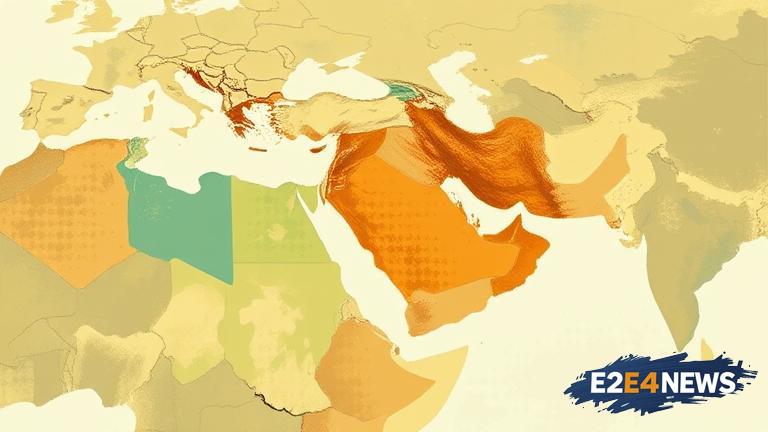The Middle East has been witnessing a significant transformation in its economic landscape, with many countries in the region making concerted efforts to diversify their economies and reduce their dependence on oil exports. This shift is being driven by a combination of factors, including the region’s strategic location, massive investments in infrastructure, and a growing focus on innovation and technology. As a result, the Middle East is emerging as a key player in the global economy, with many countries in the region experiencing rapid economic growth and development. The United Arab Emirates, Saudi Arabia, and Qatar are among the countries leading this charge, with major investments in sectors such as logistics, tourism, and finance. The region’s strategic location, which connects Europe, Asia, and Africa, makes it an ideal hub for international trade and commerce. Additionally, the Middle East is home to some of the world’s most ambitious infrastructure projects, including the Dubai Expo 2020 and the Qatar World Cup 2022. These projects have not only created new opportunities for businesses and investors but also helped to promote the region’s economic development. Furthermore, many countries in the Middle East are investing heavily in innovation and technology, with a focus on areas such as artificial intelligence, renewable energy, and cybersecurity. This is helping to drive economic growth and create new opportunities for entrepreneurs and startups. The region is also witnessing a growing trend towards economic integration, with many countries working together to promote trade and investment. The Gulf Cooperation Council (GCC) is one example of this, with its member countries working together to promote economic cooperation and integration. Overall, the Middle East is poised to play an increasingly important role in the global economy, driven by its strategic location, massive investments in infrastructure, and a growing focus on innovation and technology. As the region continues to evolve and grow, it is likely to present many new opportunities for businesses, investors, and entrepreneurs. The Middle East’s emergence as a key player in the global economy is also being driven by its growing trade relationships with other regions, including Asia, Europe, and Africa. The region’s trade relationships with these regions are expected to continue to grow in the coming years, driven by the increasing demand for goods and services. In addition, the Middle East is also witnessing a growing trend towards economic diversification, with many countries in the region working to reduce their dependence on oil exports and promote economic growth in other sectors. This is helping to drive economic development and create new opportunities for businesses and investors. The region’s economic growth is also being driven by its growing population, which is expected to continue to increase in the coming years. This is creating new opportunities for businesses and investors, particularly in sectors such as retail, hospitality, and healthcare.
